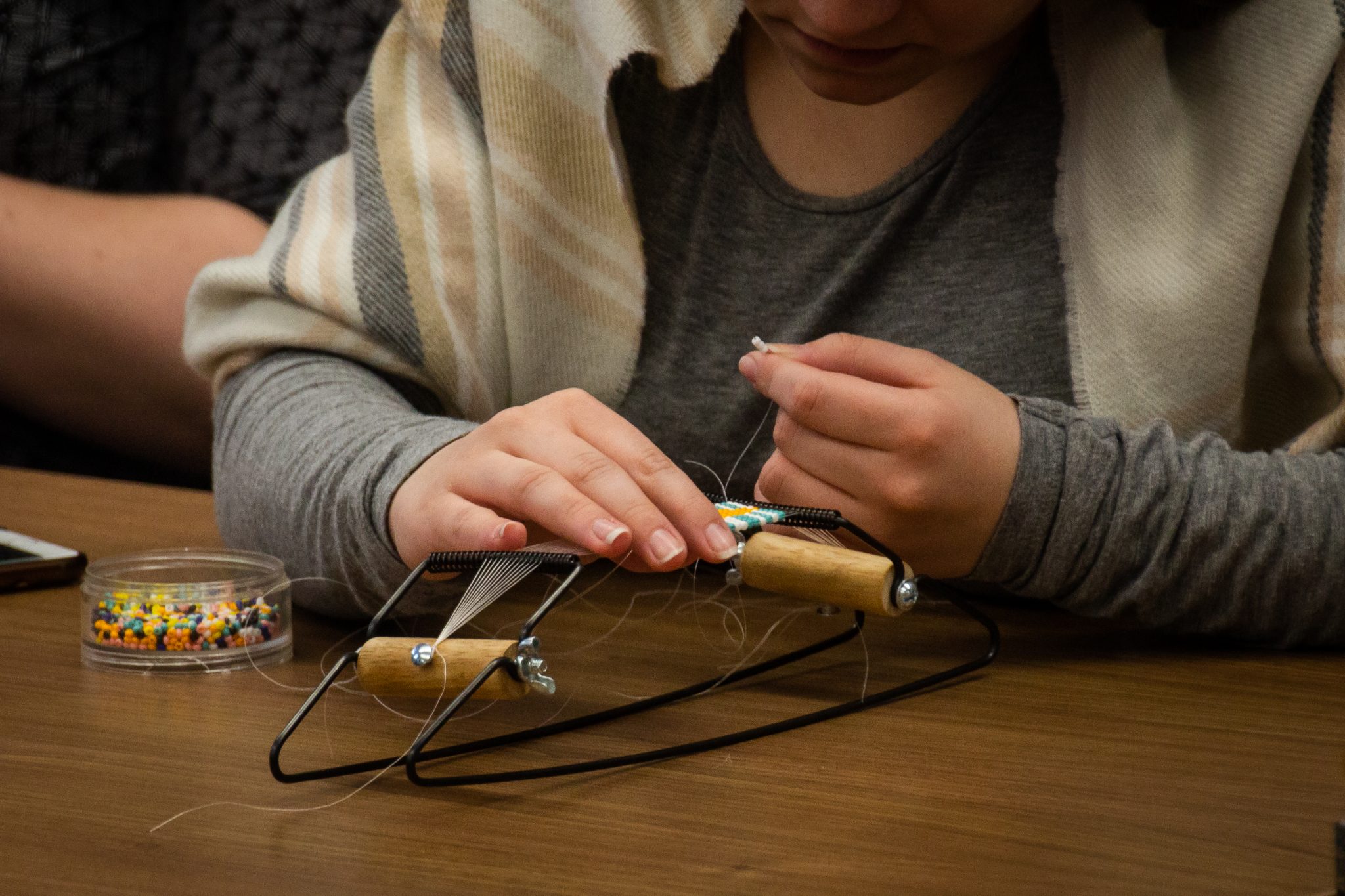Laurier celebrates ninth annual Indigenous Education Week

Mar. 2 marked the beginning of Wilfrid Laurier University’s ninth annual Indigenous Education Week, a time devoted to recognizing the many contributions that Indigenous people bring to education and sharing Indigenous knowledge.
“I want people to know that it is a chance and an opportunity to engage in connections and relationships with the Indigenous community on campus,” said Melissa Ireland, director: Indigenous initiative. “It’s an opportunity to learn, experience new things and create relationships.”
Indigenous education week was born from Laurier’s desire to take the lead when it comes to showcasing the experiences and contributions of Indigenous community members, and providing the student population with a more diverse learning experience.
“We often get requests to support events and activities, which we help with which is wonderful, but at the same time we were like ‘you know, instead of just being a partner on people’s events, why not take the lead’ and showcase and lift up our Indigenous campus community,” Ireland said.
There will be various events taking place during Indigenous Education Week between March 2 and 6 on both the Waterloo and Brantford campuses, including public lectures, film viewings, lunches and more.
An Indigenous education panel with local professors, a soup and bannock lunch, medicinal tea and teachings, Indigenous senior peer mentor drop in session, among others are some of the events which have already taken place.
“We’ve really worked hard to really balance the programming at Waterloo and Brantford not to just have speakers but also to engage in experiential learning opportunities and use our hands and our hearts and our minds,” said Ireland.
“We tend to usually have one or two headliners, so we try to bring high profile Indigenous guests to campus to educate and lift up our Indigenous community as well as the non-Indigenous campus community,” Ireland said.
This year’s Indigenous Education Week headliners include a variety events on both campuses.
On Mar. 4, there will be a film viewing of nîpawistamâsowin: We Will Stand Up which looks at the history of colonialism in the Canadian prairies. The viewing will be followed by a public lecture with director Tasha Hubbard on the Brantford campus.
On Mar. 6, Brantford will also be hosting a public lecture with entrepreneur Colleen Davis, a member of the Six Nations of the Grand River Territory, Mohawk Nation, Bear Clan. The lecture, titled “Land Reclamation, Six Nations, Support of Wet’suwe’ten: A Woman’s Duty: Protecting the Land for Future Generations,” will have a particular focus on women for international women’s day.
On the Waterloo campus, there will be a public lecture with Alicia Elliot, Haudenosaunee writer, taking place on Mar. 4. The lecture will examine the media’s roles and responsibilities regarding missing and murdered Indigenous women and girls.
“She is a national writer and Indigenous influencer, so it’s a very big deal that she is coming,” Ireland said.
On Mar. 5, Something Cold and Hard like Winter, a multimedia art exhibition, creator Shelley Niro of the Six Nations of the Grand River Territory, Bay of Quinte Mohawk, Turtle Clan will be present on the Waterloo campus to give a lecture about her work.
The exhibit itself, comprised of a short film, images and triptychs, is located in the Robert Langen Art Gallery within the Laurier library and will be open to audiences until Apr. 3
There will be various other events taking place on both campus throughout the week which are listed in more detail on Laurier’s designated Indigenous Education Week webpage.
All events are free of charge and open to both the student body and the Waterloo community as a whole, though some events do require registration prior to the event.
Apart from Indigenous Education Week, there are ways that both students and faculty alike can continue to support Indigenous educators and the Indigenous community as a whole when it comes to the current educational infrastructure at Laurier.
“We also really hope that people will want to encourage more Indigenization of content in their departments and faculties, so if students wanted to address that within their departments or faculties, as it needs,” Ireland continued.
“I only see Indigeneity and decolonization growing on campus.”
“Indigeneity is a key component is a key component of Laurier’s strategic vision 2019:2024, so we’re in the process from the office of Indigenous initiatives to work with other departments and faculties and units to lift up and indigenous areas in their work as well.”

